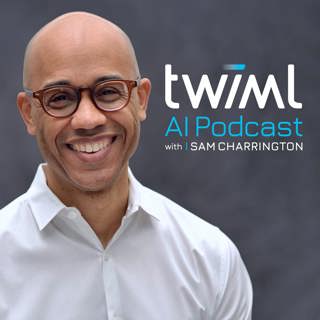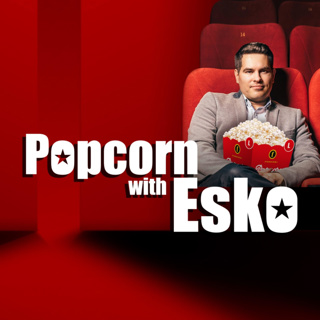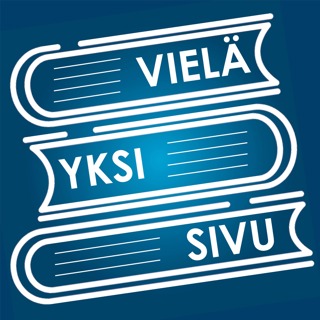
Deep Learning for 3D Sensors and Cameras in Lighthouse with Alex Teichman - TWiML Talk #103
In this episode, I sit down with Alex Teichman, CEO and Co-Founder of Lighthouse, a company taking a new approach to the in-home smart camera. Alex and I dig into what exactly the Lighthouse product is, and all the interesting stuff inside, including its combination of 3D sensing, computer vision, and NLP. We also talk about Alex’s process for building the Lighthouse network architecture, they tech stack the product is based on, and some things that surprised him in their efforts to get AI into a consumer product. Be sure to check out some of the great names that will be at the AI Conference in New York, Apr 29–May 2, where you'll join the leading minds in AI, Peter Norvig, George Church, Olga Russakovsky, Manuela Veloso, and Zoubin Ghahramani. Explore AI's latest developments, separate what's hype and what's really game-changing, and learn how to apply AI in your organization right now. Save 20% on most passes with discount code PCTWIML at twimlai.com/ainy2018. Early price ends February 2! The notes for this show can be found at twimlai.com/talk/103. For complete contest details, visit twimlai.com/myaicontest. For complete series details, visit twimlai.com/aiathome.
30 Tammi 201842min

Computer Vision for Cozmo, the Cutest Toy Robot Everrrrr! with Andrew Stein - TWiML Talk #102
In this episode, I'm joined by Andrew Stein, computer vision engineer at consumer robotics company Anki, and his partner in crime Cozmo, a toy robot with tons of personality. Andrew joined me during the hustle and bustle of CES a few weeks ago to give me some insight into how Cozmo works, plays, and learns, and how he’s different from other consumer robots you may know, such as the Roomba. We discuss the types of algorithms that help power Cozmo, such as facial detection and recognition, 3D pose recognition, reasoning, and even some simple emotional AI. We also cover Cozmo’s functionality and programmability, including a cool feature called Code Lab. This was a really fun interview, and you’ll be happy to know there’s a companion video starring Cozmo himself right here: https://youtu.be/jUkacU1I0QI. Be sure to check out some of the great names that will be at the AI Conference in New York, Apr 29–May 2, where you'll join the leading minds in AI, Peter Norvig, George Church, Olga Russakovsky, Manuela Veloso, and Zoubin Ghahramani. Explore AI's latest developments, separate what's hype and what's really game-changing, and learn how to apply AI in your organization right now. Save 20% on most passes with discount code PCTWIML at twimlai.com/ainy2018. Early price ends February 2! The notes for this show can be found at twimlai.com/talk/102. For complete contest details, visit twimlai.com/myaicontest. For complete series details, visit twimlai.com/aiathome.
30 Tammi 201843min

Expectation Maximization, Gaussian Mixtures & Belief Propagation, OH MY! w/ Inmar Givoni - Talk #101
In this episode i'm joined by Inmar Givoni, Autonomy Engineering Manager at Uber ATG, to discuss her work on the paper Min-Max Propagation, which was presented at NIPS last month in Long Beach. Inmar and I get into a meaty discussion about graphical models, including what they are and how they’re used, some of the challenges they present for both training and inference, and how and where they can be best applied. Then we jump into an in-depth look at the key ideas behind the Min-Max Propagation paper itself, including the relationship to the broader domain of belief propagation and ideas like affinity propagation, and how all these can be applied to a use case example like the makespan problem. This was a really fun conversation! Enjoy! Be sure to check out some of the great names that will be at the AI Conference in New York, Apr 29–May 2, where you'll join the leading minds in AI, Peter Norvig, George Church, Olga Russakovsky, Manuela Veloso, and Zoubin Ghahramani. Explore AI's latest developments, separate what's hype and what's really game-changing, and learn how to apply AI in your organization right now. Save 20% on most passes with discount code PCTWIML. Visit twimlai.com/ainy2018 for registration details. Early price ends February 2!
26 Tammi 201848min

A Linear-Time Kernel Goodness-of-Fit Test - NIPS Best Paper '17 - TWiML Talk #100
In this episode, I speak with Arthur Gretton, Wittawat Jitkrittum, Zoltan Szabo and Kenji Fukumizu, who, alongside Wenkai Xu authored the 2017 NIPS Best Paper Award winner “A Linear-Time Kernel Goodness-of-Fit Test.” In our discussion, we cover what exactly a “goodness of fit” test is, and how it can be used to determine how well a statistical model applies to a given real-world scenario. The group and I the discuss this particular test, the applications of this work, as well as how this work fits in with other research the group has recently published. Enjoy! In our discussion, we cover what exactly a “goodness of fit” test is, and how it can be used to determine how well a statistical model applies to a given real-world scenario. The group and I the discuss this particular test, the applications of this work, as well as how this work fits in with other research the group has recently published. Enjoy! This is your last chance to register for the RE•WORK Deep Learning and AI Assistant Summits in San Francisco, which are this Thursday and Friday, January 25th and 26th. These events feature leading researchers and technologists like the ones you heard in our Deep Learning Summit series last week. The San Francisco will event is headlined by Ian Goodfellow of Google Brain, Daphne Koller of Calico Labs, and more! Definitely check it out and use the code TWIMLAI for 20% off of registration. The notes for this show can be found at twimlai.com/talk/100.
24 Tammi 201822min

Solving Imperfect-Information Games with Tuomas Sandholm - NIPS ’17 Best Paper - TWiML Talk #99
In this episode I speak with Tuomas Sandholm, Carnegie Mellon University Professor and Founder and CEO of startups Optimized Markets and Strategic Machine. Tuomas, along with his PhD student Noam Brown, won a 2017 NIPS Best Paper award for their paper “Safe and Nested Subgame Solving for Imperfect-Information Games.” Tuomas and I dig into the significance of the paper, including a breakdown of perfect vs imperfect information games, the role of abstractions in game solving, and how the concept of safety applies to gameplay. We discuss how all these elements and techniques are applied to poker, and how the algorithm described in this paper was used by Noam and Tuomas to create Libratus, the first AI to beat top human pros in No Limit Texas Hold’em, a particularly difficult game to beat due to its large state space. This was a fascinating interview that I'm really excited to share with you all. Enjoy! This is your last chance to register for the RE•WORK Deep Learning and AI Assistant Summits in San Francisco, which are this Thursday and Friday, January 25th and 26th. These events feature leading researchers and technologists like the ones you heard in our Deep Learning Summit series last week. The San Francisco will event is headlined by Ian Goodfellow of Google Brain, Daphne Koller of Calico Labs, and more! Definitely check it out and use the code TWIMLAI for 20% off of registration. The notes for this show can be found at twimlai.com/talk/99
22 Tammi 201827min

Separating Vocals in Recorded Music at Spotify with Eric Humphrey - TWiML Talk #98
In today’s show, I sit down with Eric Humphrey, Research Scientist in the music understanding group at Spotify. Eric was at the Deep Learning Summit to give a talk on Advances in Deep Architectures and Methods for Separating Vocals in Recorded Music. We discuss his talk, including how Spotify's large music catalog enables such an experiment to even take place, the methods they use to train algorithms to isolate and remove vocals from music, and how architectures like U-Net and Pix2Pix come into play when building his algorithms. We also hit on the idea of “creative AI,” Spotify’s attempt at understanding music content at scale, optical music recognition, and more. This show is part of a series of shows recorded at the RE•WORK Deep Learning Summit in Montreal back in October. This was a great event and, in fact, their next event, the Deep Learning Summit San Francisco is right around the corner on January 25th and 26th, and will feature more leading researchers and technologists like the ones you’ll hear here on the show this week, including Ian Goodfellow of Google Brain, Daphne Koller of Calico Labs, and more! Definitely check it out and use the code TWIMLAI for 20% off of registration. The notes for this show can be found at twimlai.com/talk/98
19 Tammi 201827min

Accelerating Deep Learning with Mixed Precision Arithmetic with Greg Diamos - TWiML Talk #97
In this show I speak with Greg Diamos, senior computer systems researcher at Baidu. Greg joined me before his talk at the Deep Learning Summit, where he spoke on “The Next Generation of AI Chips.” Greg’s talk focused on some work his team was involved in that accelerates deep learning training by using mixed 16-bit and 32-bit floating point arithmetic. We cover a ton of interesting ground in this conversation, and if you’re interested in systems level thinking around scaling and accelerating deep learning, you’re really going to like this one. And of course, if you like this one, you’re also going to like TWiML Talk #14 with Greg’s former colleague, Shubho Sengupta, which covers a bunch of related topics. This show is part of a series of shows recorded at the RE•WORK Deep Learning Summit in Montreal back in October. This was a great event and, in fact, their next event, the Deep Learning Summit San Francisco is right around the corner on January 25th and 26th, and will feature more leading researchers and technologists like the ones you’ll hear here on the show this week, including Ian Goodfellow of Google Brain, Daphne Koller of Calico Labs, and more! Definitely check it out and use the code TWIMLAI for 20% off of registration.
17 Tammi 201839min

Composing Graphical Models With Neural Networks with David Duvenaud - TWiML Talk #96
In this episode, we hear from David Duvenaud, assistant professor in the Computer Science and Statistics departments at the University of Toronto. David joined me after his talk at the Deep Learning Summit on “Composing Graphical Models With Neural Networks for Structured Representations and Fast Inference.” In our conversation, we discuss the generalized modeling and inference framework that David and his team have created, which combines the strengths of both probabilistic graphical models and deep learning methods. He gives us a walkthrough of his use case which is to automatically segment and categorize mouse behavior from raw video, and we discuss how the framework is applied here and for other use cases. We also discuss some of the differences between the frequentist and bayesian statistical approaches. The notes for this show can be found at twimlai.com/talk/96
15 Tammi 201835min





















